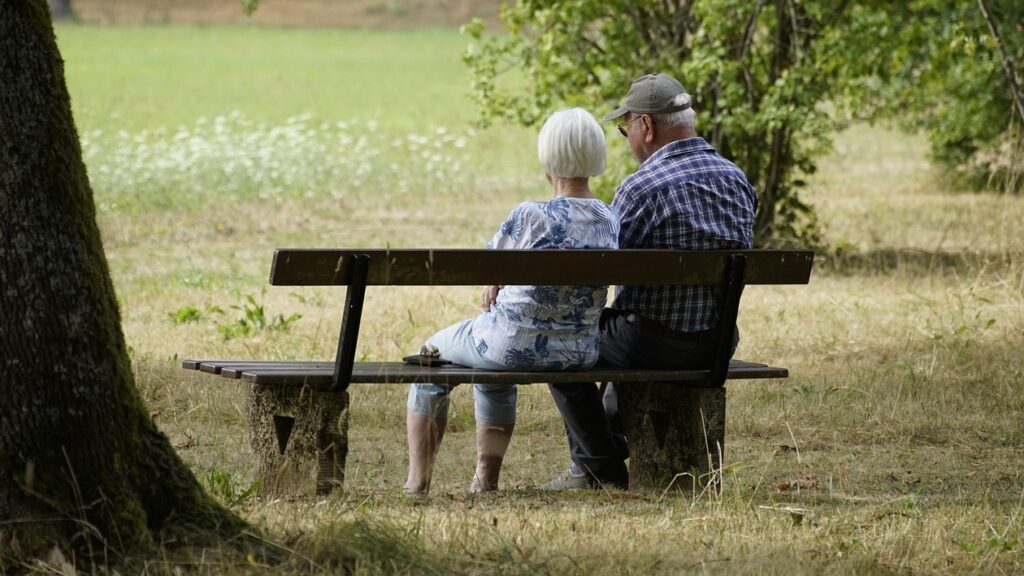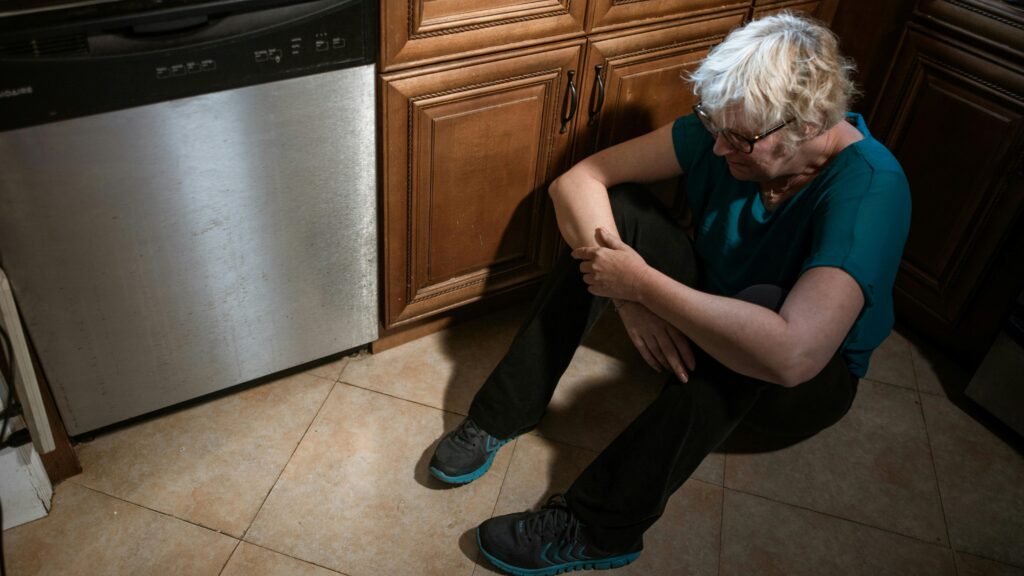Quick Snapshot:
– Mental health is a foundation on which the well-being of older people depends; this cuts across aspects such as physical and psychological health.
– Older people may benefit greatly from intervention by professionals since social relations, physical movement, and a balanced diet are associated with better mental health and an improved quality of life.
– Ready to take care of the seniors in your life? Encourage a healthy mind and support them in achieving it. Read this guide to learn how to help them stay active during their golden age.
Since the global population is aging steadily, appreciating the multiple connections between mental health and physical health in seniors has never been more important. The process of aging often involves various adversities, including the prevalence of physical disability, grief, and loneliness, all of which negatively affect the psychological well-being of older people. But how can seniors optimize these chances to increase their quality of life and reduce the potential burden? Many turn to senior in-home care, which helps with daily activities and contributes to strong health and well-being through companionship and mental stimulation. By involving the elderly and catering to all their needs, it becomes possible for them to maintain some level of independence while receiving health care services. This article will analyze the connection between Indexed Mental Health and seniors’ quality of life and how changes can improve their lives.
1. Mental Health: A Crucial Element of Senior Well-being

Senior’s mental health is a basic human need that usually goes unnoticed and unaddressed in most systems. Many aspects of aging are associated with changes in mental health, which physical, emotional, or social difficulties might trigger. Mental health disorders like depression and anxiety, as well as neurodegenerative conditions like ”dementia” and ”Alzheimer’s,” are not only more frequent among older adults but also more vulnerable to a range of factors that can worsen their prognosis—including common diseases, social isolation, and loss of autonomy. Loss of state, loneliness, the death of a partner, physical disturbances, and restrictions can be the primary causes of mental diseases in seniors.
Besides, there is a negative relationship between poor mental health and quality of life in seniors. For instance, untreated mental complications can exacerbate physical illnesses, greatly reducing seniors’ abilities and their chances of an independent existence. Studies show that older adults often endure common mental health conditions that are either unidentified or untreated, which, if left unaddressed, develop into chronic and severe issues. Therefore, there is a great need for mental health intervention to cater to elderly individuals to enhance their quality of life, emotionally as well as physically.
2. The Impact of Mental Health on Physical Health in Seniors
Much research supports the relationship between mental and physical health, which is most apparent among older men and women. Depression and anxiety have been seen to be related to many symptoms. For example, people with depression may experience various physical symptoms such as headaches, sore throats, backaches, constant tiredness, and insomnia. These symptoms can reduce their ability to participate in daily activities, worsening the patient’s health. A literature review also shows that depression leads to weakened immunity in older people, making them more prone to illness.
Likewise, the symptoms of mental health issues can worsen chronic diseases in the body. However, this connection is yet to be fully understood as part of the physical prognosis of the patient’s condition. Older adults with ailments such as arthritis or diabetes may have poor control over these ailments as a result of hopelessness or low motivation. Such a cycle of physical disease and mental disorder may become an obstacle to the proper treatment, predisposing patients to neglect hygiene practices or skip doctor’s appointments.
Although mental health is important for being mentally well, handling it is equally important, especially for physical health. Caring for mental conditions also improves treatment outcomes of chronic illness in seniors by enhancing their coping capacity, thus giving them better quality and healthier lives.
3. Common Mental Health Issues in Seniors

This paper aims to establish that depression and anxiety disorders in older adults are generally overlooked because the symptoms resemble normal aging effects. However, many mental health conditions are both frequent and significant, warranting thorough investigation.
Depression is a most significant mental illness among seniors, which is an unfortunate reality. It often manifests as sadness and or depression, lack of desire to engage in activity, and withdrawal from social interactions. In addition to having depressive disorder, elderly individuals may also display symptoms such as increased sleep disturbances, appetite changes, and fatigue, all of which contribute to their physical decline.
Specific phobias are also common among older adults; some of them may have different types of anxiety related to their health, property, or fear of becoming dependent. Problems associated with anxiety can disrupt sleep, affect temper, and impair focus. Instead, chronic anxiety may also negatively impact their ability to interact socially, which can make the seniors feel isolated.
Another significant issue of mental health is cognitive decline, including diseases such as ”Alzheimer’s disease.” Confusion and memory loss may manifest in frustration and difficulty with reasoning. At this stage, the patient may struggle, and older adults’ cognitive functions become impaired, preventing them from managing activities of daily living, thus increasing their dependence on caregivers.
Finally, loneliness and social isolation are quite common and can aggravate mental health. Older adults, especially those who live alone or are far away from their family members, may become isolated, which can lead to stress, anxiety, and depression. The study also finds that isolation can negatively impact physical well-being, making aging even more difficult.
4. Social Connections: The Link Between Relationships and Mental Health
You also know that people over sixty need communication and support because loneliness can cause serious mental health problems. Studies consistently also demonstrate how active and satisfactory social relationships with people and the community help to enhance older people’s psychological well-being, decrease depression, and preclude the adverse effects of declining cognitive health. Social skills allow older adults to exercise their brains and meet new people to prevent feelings of loneliness.
On the other hand, social isolation is another significant factor in poor mental health among older people. Social isolation and loneliness affect elderly individuals, making them more prone to depression, anxiety, or even contemplating suicide. Research has shown that loneliness leads to poor health states and can even cause hypertension.
Maintaining interaction with friends by visiting, attending social functions, or even virtually communicating can help mitigate the impacts of isolation, reducing adverse consequences to senior’s mental and physical well-being.
5. Physical Activity: A Key Factor in Mental and Emotional Well-being

Exercise is important for seniors’ physical, spiritual, and psychological well-being. Physical exercise has often been described as a natural antidepressant that reduces signs of anxiety and increases general happiness. Being physically active through walking, swimming, or farming can also improve senior citizens’ memory and overall brain function.
Endorphins, the body’s natural mood booster, are also released by the brain during exercise, thus diminishing anxiety and negative feelings. In addition, lack of exercise can lead to heightened depression and anxiety levels, which can be particularly problematic for seniors with physical or other possibly related health issues.
Besides enhancing the body’s general immunity, physical activity also improves quality sleep, an obvious sign of a healthy mental status. Physical activity leads to better, more restful sleep, decreases the incidence of insomnia, and improves mood. It is possible to motivate people to introduce physical activity into their daily schedule, benefiting seniors in both physical and mental health.
6. Nutrition and Mental Health: Fueling the Brain for Well-being
Nurses strongly agree that meals prepared to suit seniors affect their physical as well as psychological well-being. Healthy eating also helps improve brain health and successfully prevents incidents of mental illness and mood swings. Many vitamins and nutrients are good for the brain, such as omega-3 fatty acids found in fish, antioxidants in berries and greens, and vitamins such as B12 and folate.
On the other hand, dietary choices centered around processed foods, refined sugars, and unhealthy fats have several detrimental impacts on the brain, resulting in fatigue, increased irritability, and depression. These eating habits also contribute to other diseases, including diabetes or heart diseases, which are associated with poorer mental states.
Ensuring that older people maintain a balanced diet and proper food intake is crucial. Older adults often face reduced mobility or dexterity when preparing meals; thus, assistance in this area can significantly improve their health.
7. Mental Stimulation: Keeping the Mind Active for Longevity

Engaging the mind is crucial when dealing with any eventuality, especially for older people. This is because developing new pathways in the brain through activities like role play, crosswords, reading, or learning new skills can slow down the development of conditions such as dementia or Alzheimer’s. These activities help improve memory, concentration, and overall brain health, improving the lives of those affected.
Persons who engage in mentally stimulating activities enhance clarity and a better mood and purpose. Communication and other activities that require thinking, like games, music, and training, contribute to building psychological resilience and emotional stability. Promoting mental activity may be as effective in lengthening one’s useful years and immunity to the ills of aging as a proper diet, regular physical exercise, and good genes.
8. Access to Professional Support: Addressing Mental Health Needs
Older people need to seek professional assistance if they have some difficulties, and yet, seniors with mental illness can experience certain obstacles like stigma or a shortage of resources. These problems should be diagnosed at such an early stage to prevent further deterioration of health and avoid worsening the quality of life due to the existing mental health disorders.
CBT and antidepressant and antianxiety medication can also encourage socialization in the elderly, along with other psychological interventions that may address depressed patients’ symptoms. Outpatient visits to healthcare providers are recommended frequently, as other age-related diseases often mask most mental disorders in older adults. Promoting awareness of mental health issues and how these individuals can be well managed will improve the quality of life for the older population.
9. Holistic Approaches to Enhancing Mental and Physical Well-being

The concept of senior care is a comprehensive understanding of how the physical, mental, and emotional systems function together. The holistic view shows that seniors can enjoy a higher quality of life by paying attention to the physical, emotional, cognitive, social, and spiritual dimensions of existence. A Proper diet, regular exercise, and mental and emotional health improve brain and body performance.
That is why it is possible to state that embracing wellness programs specifically developed to address the needs of older people would be highly beneficial for seniors. Fun and productive group exercises like aerobics, art and music, and meditation help with social interaction and enhance the wellness of the heart and mind. Further, the availability of counseling services or peer support groups ensures that the seniors feel a sense of belonging and can effectively manage neurological or physical lifestyle challenges, thus enhancing their psychological and bodily well-being for longer.
Conclusion: The Interconnectedness of Mental Health and Senior Well-being
A prolonged relationship between mental health and overall health is vital for a happy life in seniors. Mental health encompasses physical health, brain, and emotional well-being. Interpersonal relationships, exercise, and diet regimes correlate with improved quality of life in the elderly, and counseling may also benefit them.
It is, therefore, important to embrace social well-being to support older adults since disease does not differentiate between the physical and mental state. Consequently, we must take active measures to prevent older people from facing such challenges and ensure they can lead wholesome, productive later lives. Are you, or someone you care about, getting all the help you need to lead a happy, healthy life?
